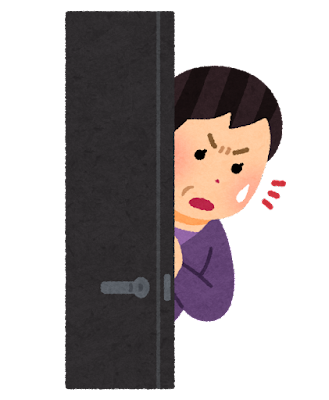Why the Difference Matters: The Concepts of Object Permanence and Working Memory
author/ amanda/ august 27, 2023
What is Object Permanence?
Autistic, ADHD, and AuDHD girls and women may assume that they struggle with object permanence, but this is actually not the correct term. Officially, object permanence is the concept that items, tasks, and even people continue to exist even when they are not visible/ not being perceived at that very moment. This is a fundamental cognitive concept that typically develops in infancy and it marks a crucial milestone in cognitive development. It also plays a significant role in memory, attention, and reasoning. Basically, object permanence is the realization that just because you can’t see something doesn’t mean it has stopped existing.




Now, the concept of object permanence is used for developing babies, not for AuDHD girlies. Babies genuinely think the item or person is gone forever when not being directly perceived. Individuals with AuDHD very much understand that the item, task, or person still exists, but they simply forget unless they are in direct involvement with said item, task, or person. Therefore, using this term wouldn’t be accurate considering AuDHD girls and women struggle with memory and forgetfulness rather than not understanding the existence of items, tasks, and people. Therefore, a better term for this phenomenon might be “working memory” because using the term “object permanence” might create confusion and also cause neurotypicals to infantilize AuDHD girls and women by likening them to developing babies.
What is Working Memory?
Working memory is more akin to the idea of “out of sight, out of mind” rather than object permanence. It is a cognitive system responsible for temporarily holding and manipulating information needed to perform various mental tasks. It’s the mental workspace that allows us to hold onto information while simultaneously processing and using it in the present moment. Think of it as a mental whiteboard where you can jot down and rearrange information as you work through tasks day to day. This can be especially troublesome for girls and women with AuDHD as their minds are like a beehive, buzzing with immense amounts of information. You might struggle to focus your attention on tasks, leading to challenges with encoding (putting information in your short-term memory) and retaining information. This can manifest as forgetfulness, disorganization, issues with transitioning between tasks, trouble with multi-step tasks, and difficulty following instructions. Challenges in working memory can affect your academic/work performance, task completion, and overall executive functioning.


If you struggle with working memory, you may experience some of the following:
-
Not responding to texts and emails because you either answered them in your head already, or you were going to do it later, but totally forgot to.
-
Not leaving your house because you can’t physically see that your car is parked in the driveway and you forget that you have free will to leave whenever you want.
-
Not paying bills because you opened your mail/app and told yourself that you’d do it later, but forgot.
-
Forgetting your food in the microwave, oven, or other appliance because you are not actively engaging with it and it can’t be seen.
-
Not calling or connecting with an extended family member because they live elsewhere and rarely ever cross your mind. (This is NOT intentional avoidance and has nothing to do with lack of love/care for the family member. Rather, you are more focused on everything around you in your daily life that everything else becomes extra baggage or lost.)
-
Losing friendships because you regularly struggle to reach out. You may go months without talking to this friend, completely unaware that it’s been a long time and that they felt abandoned by you. (This is NOT intentional avoidance and has nothing to do with lack of love/care for the friend. Rather, you are more focused on everything around you in your daily life that everything else becomes extra baggage or lost.)
-
Having food go bad in the refrigerator because they were “hidden” in drawers and you forgot they were even in there.
-
Forgetting someone’s name right after they told it to you.
-
Missing a doctor’s appointment because it was scheduled so far in advance that you forgot it was even a thing.
-
Forgetting what you went into your room for as soon as you arrive. (This is also true for stores if you go shopping without a list.)
-
Leaving important textbooks/items in your locker because you forgot they were even in there or that going to your locker was even an option.
-
Missing important information in that morning work meeting because so much was said.
-
Needing to re-read the current page in your fae romance novel because you read it, but you didn’t “read” it if you catch my drift.
-
Struggling to multitask.
-
Missing an ingredient like butter in a recipe because there were so many steps involved that you completely disregarded it, or forgot to pull the butter out of the refrigerator.
Different Types of Memory
In general, your memory can be can be placed into four different categories:
-
Short-Term Memory
Imagine short-term memory as a temporary storage space in your brain, like a sticky note pad. It's where you temporarily hold information that you're actively using. For example, when you read a phone number and repeat it to yourself until you dial it, you're using your short-term memory. This type of memory helps you remember things for a short period, like a few seconds to a minute. But if you don't actively think about it, the information can quickly fade away, like a sticky note that loses its stickiness.
-
Long-Term Memory
Long-term memory is like a big storage room in your brain where you store important information for the long haul. It's where you keep things you want to remember for a long time, like dates for important birthdays or song lyrics. Long-term memory is like the library of your brain, with all your knowledge and experiences neatly organized on its shelves. This type of memory has a much larger capacity than short-term memory, and things you store here can stay with you for years or even a lifetime.
-
Working Memory
The working memory is your brain's "mental workspace." It's like the office/desk in your mind where you're actively working on tasks in the present. Working memory helps you keep things in mind while you're using them. For instance, if you're following directions to assemble a piece of furniture, you use your working memory to hold onto the steps you're currently following. It's the memory system you rely on to do tasks that require thinking and processing, like doing math calculations or solving puzzles. Working memory helps you juggle information, make decisions, and solve problems in real time.
-
Sensory Memory
Imagine sensory memory as a quick snapshot your brain takes of the world around you. It's like a super-fast camera that captures the sights, sounds, smells, tastes, and touches you experience for just a brief moment. This memory system helps you process and make sense of the constant stream of sensory information coming your way. For example, when you see a beautiful flower, your eyes send a snapshot of that image to your brain's sensory memory. It's there for just a fraction of a second, allowing you to take in the details. You may also hear a buzzing bee nearby and your brain is also taking in that sensory information. Sensory memory acts like a gateway between your senses and your brain. While the information in sensory memory doesn't stick around for very long, it's essential for giving you a sense of what's happening in the world around you. It's like the first step in the memory process, where your brain decides what's worth paying attention to and what can be let go.
Though memory is excruciatingly complex, this is a simple way of looking at it and they all work together. Struggling with your working memory as an AuDHD girlie is not easy. Neurotypicals may view you as lazy, forgetful, absentminded, or careless. It’s hard enough to grapple with your working memory, and now you also have to contend with being perpetually misunderstood by those around you. This is not easy, but through the spread of information, we can fight the stigma surrounding working memory challenges and other symptoms/complexities surrounding ADHD, autism, and AuDHD.
